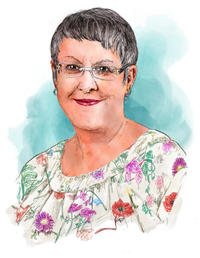The 51st St Gallen Symposium brought together more than 900 participants to debate how to address the planetary emergencies the world faces today, as well as launch a New Generational Contract together with the Club of Rome.
Almost 1000 leaders of today and tomorrow gathered in the Swiss city of St Gallen on May 5-6 to debate the economic, political and social challenges facing the world. The symposium aimed to promote “intergenerational dialogue” to address climate change, the impact of the Covid-19 pandemic, political tensions and wars. The 2022 theme was “collaborative advantage”.
The 51st edition of the St Gallen Symposium, which was first launched in 1969 and is organised each year by the University of St Gallen students, attracted many global leaders the likes of Mamphela Ramphele, co-president of non-governmental organisation Club of Rome and renowned South African academic and activist; José Manuel Barroso, board chair of vaccine alliance Gavi; and Ignazio Cassis, president of the Swiss Confederation.
It also drew young leaders, including Vanessa Nakate, Ugandan climate justice activist; Claudia Plakolm, state secretary for youth, Austria; and Chiara Sheldon, chief operating officer and co-founder of fintech Reworth.
The topics under discussion were wide-ranging from re-examining neutrality to the supply chain crisis, from harnessing age diversity to global public goods. Sustainability was a main thread throughout the two-day event, in particular in relation to the environment and climate change, but also socioeconomic considerations.
One panel, held under the Chatham House Rule, debated whether impact investing can make a difference. According to a panellist, the investor has to take an activist stance or move into the illiquid space, for example financing start-ups or infrastructure, for money to have an impact; investing in the listed equity space or secondary markets won’t be a game-changer. Another panellist talked about the revolution in finance and accounting that is beginning to happen, where impact is added to risk-return in valuation methodologies. The EU’s proposed Carbon Border Adjustment Mechanism was also discussed, as was a just transition for developing nations.
In a one-to-one interview, when asked how the banking industry could play a bigger role in ensuring a sustainable future, Ms Ramphele was critical of the financialised economic system in place today. “[We need] a financial system that would [support] a socioeconomic system, which promotes wellbeing for all and a healthy biosphere,” she said. “I see these [planetary] crises as prods for us to realise that this is no longer a maintenance issue. It’s a moment for a rethink. Reimagining, rethinking and rebuilding relational wellbeing at all levels.”
The Club of Rome is using the 50th anniversary of its seminal report ‘Limits to Growth’ to advance this debate through two new reports: ‘Earth for All’, which describes five systemic shifts that need to happen to upend poverty and inequality, lift up marginalised people, and transform food and energy systems; and ‘Limits and Beyond’, which focuses on lessons learned since 1972 and what is next. “At that time, 50 years ago, people dismissed the idea of planetary emergencies – now they are here,” said Ms Ramphele.
“What we have learned from the failure of humanity to respond to the ‘Limits to Growth’ is that human beings can create blind spots if they don’t want to see something,” she continued. “But we do know that every human being has an innate capacity to learn beyond the limits that we put on learning. And our role now is to partner with the likes of [the University of] St Gallen to talk about what kind of future world we want to see.”
In a joint initiative, at the symposium the organisations launched a New Generation Contract to address the widening divisions between generations. The aim is to “foster dialogue and, subsequently, encourage action that will elevate a wide range of concerns on intergenerational fairness”. It will focus on three themes: environmental sustainability, education and health.
They also launched a call to action and a cross-generational transformation lab, which will host regional workshops, roundtables and listening sessions. Now is the time to get involved and shape the future.
Joy Macknight is editor of The Banker. Follow her on Twitter @joymacknight
Register to receive the Editor’s blog and in-depth coverage from the banking industry through the weekly e-newsletter.



